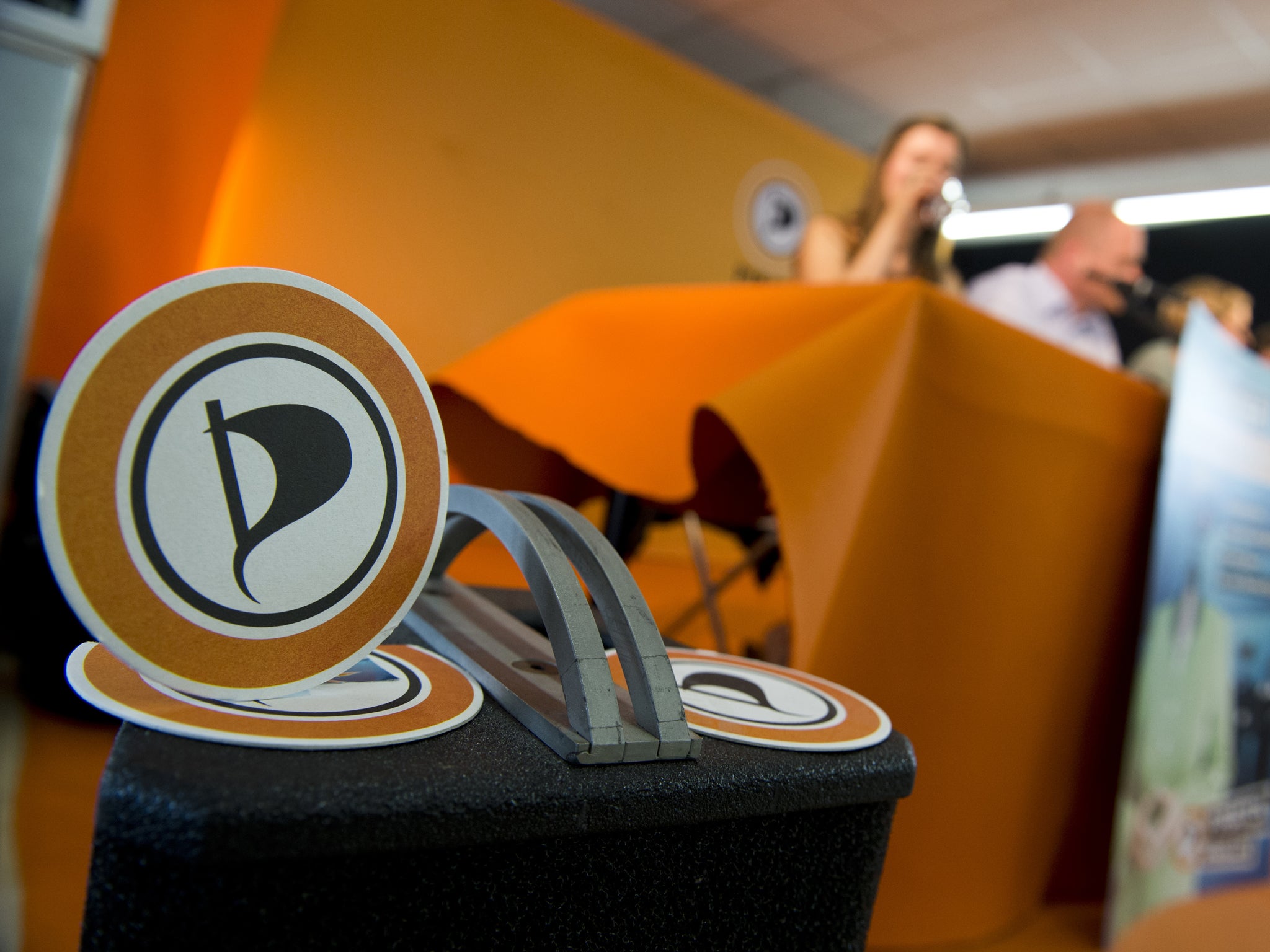Pirate Party: 'We are literally rewriting EU copyright law'
Pirate Party MEP Julia Reda is taking a leading role in the revision of European copyright law

Your support helps us to tell the story
From reproductive rights to climate change to Big Tech, The Independent is on the ground when the story is developing. Whether it's investigating the financials of Elon Musk's pro-Trump PAC or producing our latest documentary, 'The A Word', which shines a light on the American women fighting for reproductive rights, we know how important it is to parse out the facts from the messaging.
At such a critical moment in US history, we need reporters on the ground. Your donation allows us to keep sending journalists to speak to both sides of the story.
The Independent is trusted by Americans across the entire political spectrum. And unlike many other quality news outlets, we choose not to lock Americans out of our reporting and analysis with paywalls. We believe quality journalism should be available to everyone, paid for by those who can afford it.
Your support makes all the difference.Pirate Party MEP Julia Reda is leading the revision of the EU's Copyright Directive — a significant milestone for the self-described internet-freedom movement.
In his regular column on Torrent Freak, Rick Falkvinge, who in 2006 in Sweden founded the first Pirate Party, said: "A Pirate Party representative is writing the European Union’s official evaluation of the copyright monopoly, and listing a set of necessary changes.
"The tide is turning."
Reda, 28, elected to the European Parliament last year as a representative of the Pirate Party Germany, is the rapporteur of the dossier evaluating the EU's Copyright Directive and recommending changes — she's "the person writing the actual legislative document," Falkvinge said.
The Independent spoke to Reda about the possibility of reforming the controversial law, passed in 2001 following unprecedented lobbying by copyright industries.
"Copyright law needs to be updated to the digital age," she said in an e-mail interview.
"The EU copyright framework makes the protection of rights-holders mandatory, but the rights of the public only optional.
"Every member state can decide whether it wants to make exceptions from copyright for uses like education, citation or parody, and that means that users of cultural works enjoy very different rights in different European countries."
Last year, in a move celebrated by comedians, European courts held that parody and satire are exempt from copyright action so long as they're not offensive.
Reda said: "The main piece of EU legislation on copyright was adopted before Facebook and Youtube even existed. Unfortunately, the rules are too inflexible to be adaptable to new forms of using cultural works.
"In the Internet age, when people are sharing culture across borders, that has led to a situation where nobody is certain what is allowed and what is forbidden any more.
"Taking a picture of a public building or work of art and putting it on your Facebook page may be legal in one country and illegal in another."
She said she would do try and do away with pesky country restrictions: "The 'this video is not available in your country' message must be a thing of the past."
Reda, who joined the Pirate Party in 2009 after years as a member of Germany's mainstream Social Democratic Party, is the only elected representative of the Pirate Party at the European Parliament, though Sweden has previously elected two others.
She claimed the party has grown for its role in municipal coalition governments in major European cities like Reykjavik and Dresden but conceded its "procedures for participatory democracy is still at an early stage".
"We still need to learn to trust their elected representatives to make decisions on a day-to-day basis, but our perspective definitely needs to be represented in all democratic arenas — we represent a generation that views technology and the internet as an integral part of their lives rather than a threat."
The first vote on potential reforms of the European Copyright Directive will be held in the Legal Affairs committee on April 16, with the big parliamentary vote to be taken on May 20.
Join our commenting forum
Join thought-provoking conversations, follow other Independent readers and see their replies
Comments